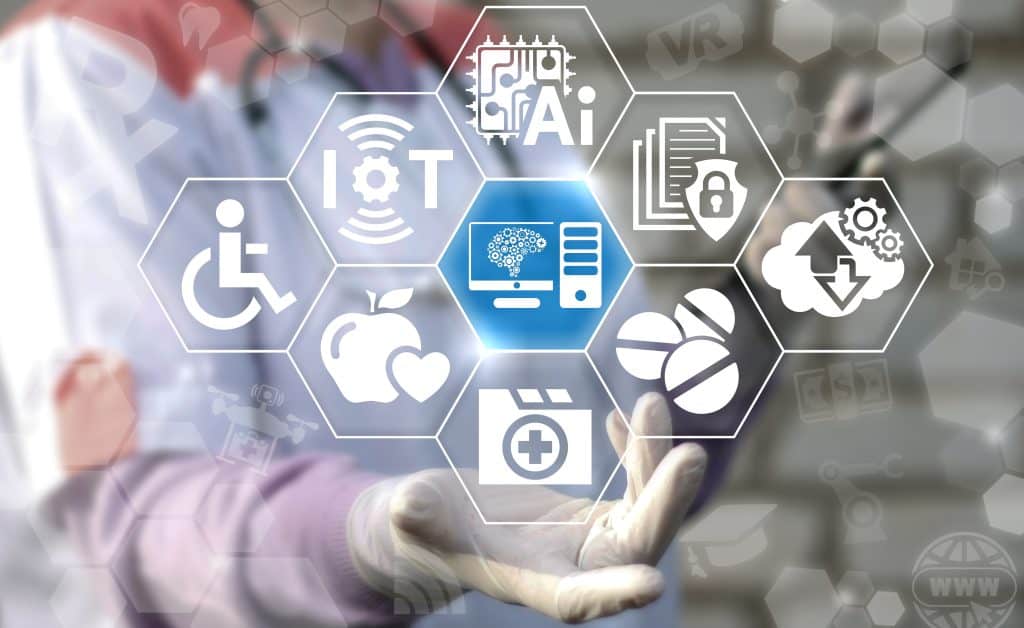Give or take half a century ago, it’s easy to pinpoint when society started to grow out of the traditional systems set in place. The price for resources is hiking up as storage is going scarce while security is getting compromised. Moreover, many factors could’ve contributed to why society decided to make this transition. Pushing forward, technology plays a significant role in this transition.
As technology advanced, so did many other aspects of life. This includes medical care and disaster recovery, to name a few. The healthcare industry went to great leaps and bounds from utilizing a paper-based system in improving the patients’ experience once it started to digitalize. It’s all thanks to the cloud-based system.
What Is A Cloud-Based System
Running multiple computing services and applications, this system is designed to fulfil the demands of users by using the internet. Since this system is made to accommodate different users all at once, businesses tend to rely on different types of cloud computing. This includes Public, Private, and Hybrid type of cloud-based systems.
While these types are meant to determine who can access their resources, various cloud models are released according to what the business itself requires. This includes the following:
- Infrastructure as a Service
- Platform as a Service, and
- Software as a Service
If you’re a business owner looking to manage your customer service, learning more about how these types and models differ from each other is crucial information. However, you might need to consult a recommended site made by cloud computing providers to know more about cloud-based systems.

How It Affects The Healthcare System
Due to its vast range, the cloud-based system could be applied to various industries. Since the healthcare industry has an extensive consumer database, it only makes sense for this industry to integrate cloud computing. Here are several ways the cloud-based system is used in the healthcare industry.
- Digitized Experience
Because of how consistent technology’s advancement is, the future when Artificial Intelligence (AI) or machine learning replaces human customer service isn’t that farfetched anymore. However, AI still hasn’t reached a point where it’s already capable of attending to every complaint of the customers.
Although you might consider this unimpressive, performing the basic functions is more than enough for those people working under customer service for the healthcare industry. With this in mind, while the AI does basic tasks, this time may serve as a resting period for worn-out employees. Once they’ve enjoyed their break, they’ll be able to perform their duties without stress or fatigue weighing them down.
- Mobile Accessibility
With how many functions there are in today’s technology, it’s easy to say that you can use your device to do almost everything on the internet. As mentioned earlier, cloud-based systems only operate through the internet. So, despite not leaving your home, you can still access your healthcare account by simply using any of your devices.
However, although you’re the account user, your healthcare service is automatically granted entry as well. While privacy might not translate well because of this, the health data stored in the system could help you in case you need medical assistance. Therefore, when you’re unable to get to the hospital, you can still enjoy health-care-related functions at your convenience.
Telemedicine is easily one of the best examples of this healthcare convenience. As long as you install a legitimate telemedicine app that complies with the Health Insurance Portability and Accountability Act (HIPAA) in your device, you can receive advice from a genuine doctor. In doing so, it smoothly accommodates whatever medical emergency you might be having.
- Extensive Storage
As vast as a cloud-based system’s range is, so does its storage capacity. That’s why big enterprises make use of this system. Having an expansive data cache means more room for the database. With thousands of citizens needing healthcare, the sky’s the limit for the space cloud-based systems has.
- Ready Distribution
Since cloud computing is done over the internet, it’s much easier to connect to other devices, causing the public cloud to be the perfect medium. Through this connectivity, many healthcare providers can divide your medical records among one another.
Why Cloud-Based Is Risky
Despite how advanced cloud computing is, you should be aware of how your potential problems are evolving as well to be at par with what features the system has.
- Vulnerable Data
Unfortunately, the cloud-based domain can still be breached, especially when using a public cloud system. Because of how open a public cloud is, cyberattacks wait right around the corner to study the system more. Therefore, rendering the attackers capable of compromising vital information about the patients despite not having any physical copies.
- Downed Systems
As soon as the cloud providers could locate the anomaly, they’ll pause operations to identify the problem, inconveniencing everyone involved. On the brighter note, since everything’s put on hold, there’s a likely chance that patient data is kept from leaking out while the system’s down. Of course, this only works unless the attackers already have full access to the database.
- Slow Updates
Having a massive platform is a double-edged sword. While it can accommodate thousands of users, updating the system would eventually be a pain. Users are bound to notice how much this update hinders the system’s overall performance.
And it’s even more unfortunate that at this caliber, the update won’t happen at a snap of a finger for every user involved. Instead, there will be those who are lucky enough to get updated first while others are still pending. Therefore, not giving everyone a fair user experience.
The Bottom-line
Technology has done well in surpassing traditional methods. Having a paper-based system can only go so far, especially with how the number of consumers within the healthcare industry kept growing by the day. As one of the many results of technological advancements, the cloud-based system was designed to assist large-scale businesses such as healthcare.







